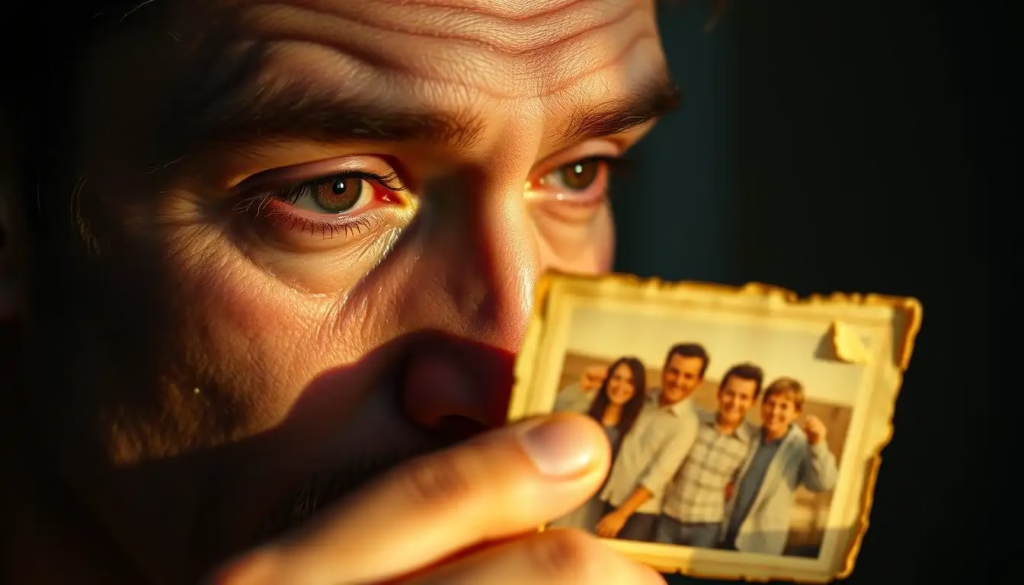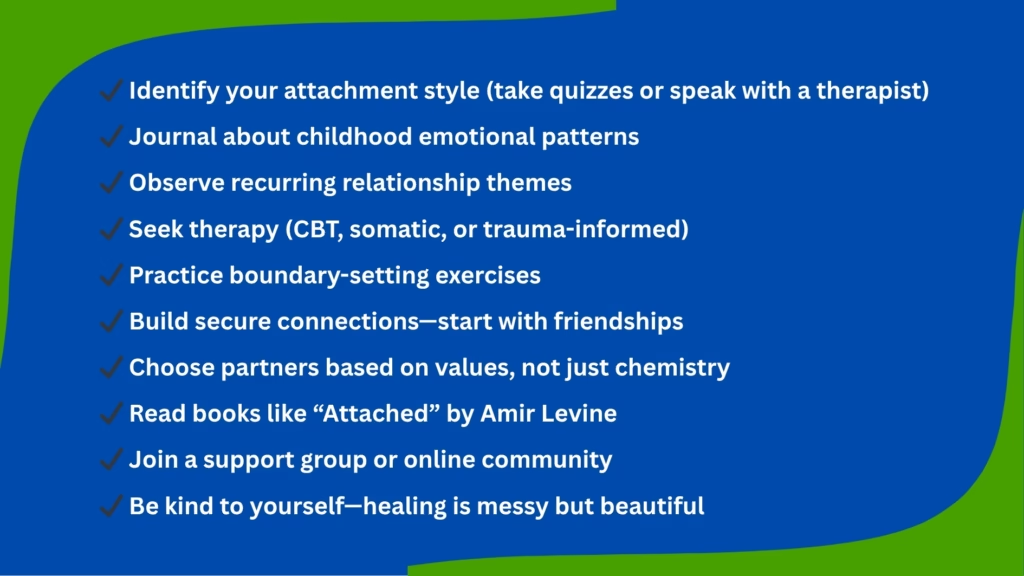Daddy issues in relationships are frequently misinterpreted, utilized as a lighthearted jab, or dismissed as a joke. But what’s the truth? In adult relationships, these severe emotional scars have the potential to subtly undermine trust, love, and communication. This article delves deeply into the psychological roots, practical applications, therapeutic methods, and professional opinions around this intricate subject. You will leave with more than just knowledge about attachment types and childhood trauma; you will also leave with hope.

💡 What Are “Daddy Issues in Relationships”?
Daddy issues in relationships are frequently caused by unfulfilled emotional needs or by traumatic events involving a father figure in childhood. A child may absorb emotional patterns that last into adulthood if their father is absent, negligent, dominating, or inconsistent. These aren’t always visible scars, but they play out through insecure attachments, difficulty trusting partners, or seeking validation in unhealthy ways.
🧠 Psychological Roots: How It All Begins
1. Attachment Styles and Father Figures
According to psychologist Dr. Mary Ainsworth’s work on attachment theory, children develop emotional blueprints early. If your father was emotionally unavailable, abusive, or inconsistent:
-
You may develop an anxious attachment style: constantly fearing abandonment.
-
Or an avoidant style: fearing intimacy, keeping emotional distance.
-
In some cases, a disorganized style arises: craving closeness but fearing pain.
📌 Real-Life Example: Sarah (32, UK) was raised by a distant father who only showed affection when she excelled. Now, she constantly over-pleases partners and falls into despair at minor signs of conflict—interpreting them as rejection.
💣 Signs You May Be Struggling With Daddy Issues in Relationships
2. Dating Older or Emotionally Distant Partners
People often unconsciously seek familiar emotional dynamics—even if they’re painful. Women with “daddy issues” may gravitate toward emotionally unavailable men, hoping to finally “earn” the love they never received as a child.
3. Constant Need for Reassurance
A deep fear of abandonment can manifest as clinginess or testing behaviors—constantly asking, “Do you still love me?” or picking fights to test loyalty.

4. Trouble Setting Healthy Boundaries
Growing up in a home where emotional needs were unmet or dismissed can make it difficult to know how to set or respect boundaries as adults.
🔬 Recent Research Insights
In a 2023 study published in the Journal of Social and Personal Relationships, researchers found that:
-
Adults with emotionally unavailable fathers were twice as likely to report relationship dissatisfaction.
-
They also exhibited increased anxiety, trust issues, and emotionally dependent behaviors.
🔗 Source: Journal of Social and Personal Relationships
📊 Comparison Table: Daddy Issues vs. Healthy Relational Patterns
| Behavior | With Daddy Issues | Healthy Relationship Pattern |
|---|---|---|
| Trust | Fearful, anxious, suspicious | Open, secure, trusting |
| Communication | Testing, passive-aggressive | Honest, direct, respectful |
| Partner Choice | Emotionally unavailable, controlling | Emotionally available, nurturing |
| Boundaries | Nonexistent or extreme | Clear, flexible, and respected |
| Conflict Handling | Panic, withdrawal, or explosion | Calm dialogue, solution-oriented |
| Emotional Dependency | Over-attachment, need for constant proof | Independent, yet emotionally connected |
🎤 Expert Insights
Dr. Ramani Durvasula, a clinical psychologist and relationship expert, says:
“People with unresolved father wounds may subconsciously replay those dynamics in adulthood—not because they want to suffer, but because they’re trying to heal what never got healed.”
🧪 Case Study: Alex’s Healing Journey
Case Study:
Alex (29, from Canada) had a father who was hypercritical and emotionally cold. In relationships, Alex found himself always defensive, interpreting feedback as attack. Through therapy (specifically inner-child and schema therapy), he began to recognize how his father’s voice had become his inner voice.
💡 Today, Alex sets boundaries, uses affirmations, and is in a healthy, committed partnership for the first time in his life.
🧰 Helpful Checklist: Healing from Daddy Issues in Relationships
💬 Real Talk: Personal Examples
A woman on Reddit shared:
“I used to sabotage every relationship because I didn’t believe anyone could actually love me for me. My dad never said he was proud. I assumed my worth had to be earned through pain. Therapy saved my love life—and my sense of self.”
🌱 Special Advice for Readers
If you recognize yourself in these patterns, don’t shame yourself. These emotional reflexes weren’t chosen—they were learned. And anything learned can be unlearned.
Begin by showing yourself the love your father couldn’t. That might mean speaking to yourself kindly, surrounding yourself with nurturing people, or simply recognizing that your story matters.
📢 Final Thought: You Are Not Broken
Daddy issues in relationships are not amusing. They are proof of emotional fortitude. Now, though? You are worthy of success. The person who didn’t love you doesn’t define your value. It’s determined by how strongly you decide to love yourself right now and the secure, wholesome connections you let in.
✨ Call to Action
If this article resonated with you, please forward it to someone who might also be experiencing quiet struggles. When we walk each other home after naming the suffering, healing starts.
💌 Want more relationship healing content? Subscribe to our weekly insights and join thousands reclaiming their love lives.
❓ FAQ’s: Daddy Issues in Relationships
1. What does it mean to have daddy issues in relationships?
It refers to emotional patterns stemming from a difficult or absent relationship with one’s father, often leading to trust issues, fear of abandonment, or emotional dependence in adult relationships.
2. Can men have daddy issues too?
Absolutely. While it’s often discussed in relation to women, many men struggle with father wounds that affect their ability to connect or be vulnerable.
3. Is therapy necessary to heal daddy issues?
While not mandatory, therapy is highly effective—especially trauma-informed or attachment-based approaches.
4. Can a good relationship heal daddy issues?
A healthy relationship can provide safety, but personal healing still requires self-awareness and inner work.
5. Are daddy issues always caused by abuse?
Not necessarily. Even emotional neglect, inconsistency, or a father being too controlling can create lasting impact.
6. What are the signs of healing from daddy issues?
Healthier boundaries, less emotional reactivity, improved self-esteem, and choosing partners based on emotional safety.
7. Can you outgrow daddy issues naturally?
Some people grow beyond them with age and experience, but intentional healing accelerates and deepens recovery.
8. Are daddy issues linked to narcissistic abuse?
Often. Many with father wounds fall prey to narcissistic partners due to low self-worth or emotional conditioning.
9. How do daddy issues affect parenting?
Unresolved trauma can repeat through emotional unavailability or overcompensation. Conscious healing breaks this cycle.
10. Where can I find support communities?
Try forums like Reddit’s r/attachment_theory, or online therapy platforms like BetterHelp for guided healing.
Useful Articles :-
- Signs of Love Bombing: 7 Red Flags to Spot Manipulative Affection Early
- What Is a Situationship? 7 Unfiltered Truths About Modern Love
- 10 Signs of a Healthy Relationship: What To Look For
- Communication Skills for Couples: 7 Transformative Tips to Strengthen Your Connection
- 7 Powerful Ways to Build Healthy Relationship Boundaries for Lasting Love
- 9 Empowering Steps for Recovering from a Breakup: Heal, Grow, and Thrive
- 7 Powerful Long-Distance Relationship Advice : Tips to Keep the Spark Alive
- Jealousy in Relationships: 7 Powerful Ways to Manage the Green-Eyed Monster
- 5 Insights Into Love Languages in Relationships : Do They Really Work?
- What Does Emotional Safety In Relationships? 7 Biblical Keys to Building Trust and Intimacy
